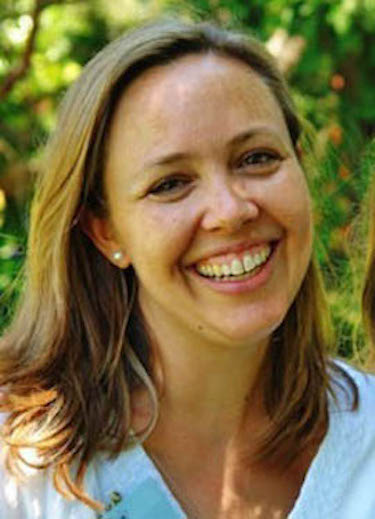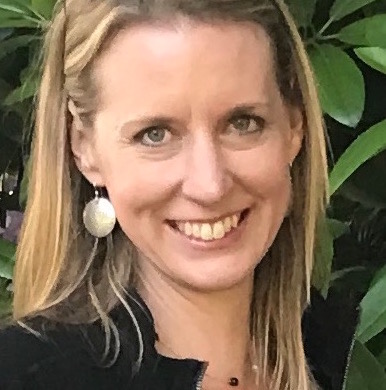

Curriculum & Outcomes
Course Features
- Pre-recorded videos featuring talks and practices
- Discussion guide for participants who want to engage in group learning (e.g., a school cohort)
- An introduction to over 200 free research-informed SEL practices
- Downloadable journal pages to capture your reflections, a-ha moments, and great ideas
Course Curriculum
This series of brief courses is designed for people who are either new to social-emotional learning (SEL), mindfulness, and character education, or would like to brush up on the latest happenings in those fields. Participants will have the opportunity to experience a number of practices, consider how SEL, mindfulness, and character education can be integrated into many aspects of school, and learn more about the latest research along with current opportunities and challenges in those fields.
Course components include:
The Basics of Social-Emotional Learning (1.5 hours):
- SEL Basics: Definitions, Examples, and Practices
- The History of SEL
- SEL Research
- SEL Implementation and Programs
- Challenges and Opportunities in the Field of SEL
The Basics of Mindfulness (1.5 hours)
- Mindfulness Basics
- Historical and Cultural Influences
- Mindfulness Research
- Teaching Tips and Practices
- Opportunities and Challenges in the Field
The Basics of Character Education (1.5 hours)
- A Sampling of Different Cultures’ and Religions’ Views of Morality
- A Brief History of Character Education in the United States
- How Character is Defined Today in the West
- Approaches to Teaching Character, Including Sample Frameworks and Programs
- Current Opportunities and Challenges in the Field of Character Education
Course Outcomes
In the Basics of SEL Mini-Course, participants will:
- Review the latest equity-focused definition of SEL from the Collaborative for Academic, Social, and Emotional Learning (CASEL)
- Explore a breakdown of specific skills for each of CASEL’s five competencies (self-awareness, self-management, social awareness, relationship skills, responsible decision-making)
- Learn practices for teaching each of CASEL’s five competencies for different ages, including adults
- Learn the history of SEL, from ancient to modern-day, along with the types of organizations currently promoting SEL
- Review the latest research on the benefits of SEL, along with some of the limitations (including cultural)
- Explore how SEL is implemented in schools and classrooms, including social and instructional teaching practices and sample SEL programs, along with key tasks for overall successful implementation
- Consider the latest opportunities and challenges in the field of SEL, such as transformative (equity-centered) SEL, the purpose and assessment of SEL, the developmental aspects of SEL, and adult SEL
In the Basics of Mindfulness Mini-Course, participants will:
- Learn research-informed and trauma-sensitive facilitation strategies
- Experience and discover a range of practices for reducing stress and connecting with your students and colleagues
- Understand the attention skills we use when we engage in different types of mindfulness practices
- Consider the historical and cultural influences on mindfulness practice and how mindfulness can play a role in reducing bias and promoting belonging in school
- Review the latest research on mindfulness benefits to students of all ages
- Explore challenges and opportunities in the field
In the Basics of Character Education Mini-Course, participants will:
- Learn how morality is defined in several cultures and religions, including Chinese culture, Hinduism, Islam, and sub-Saharan African culture
- Consider the challenge of “whose values do we teach” in a pluralistic world
- Learn a brief history of character education in the United States
- Review several definitions of character
- Examine different curricular and pedagogical approaches to teaching character, along with the “hidden curriculum”
- Learn practices for teaching character, including the four types of character, that use a variety of methods
- Explore three character education frameworks for integrating character into the DNA of school, along with sample character education programs
- Consider the research and latest opportunities and challenges in the field of character education
- Explore what it looks like when character education, social-emotional learning, and mindfulness are woven together in classrooms and schools, including practical examples
Logistics & Cost
Course Cost
Registration for the Basics Bundle is $129. This is a discount of $18 from registering for all of the Basics Mini-Courses individually.
The Greater Good Science Center is funded entirely by donations and grants—we do not receive any financial support from the University of California, Berkeley. However, we are able to offer many of our GGSC resources for free because we charge for some of our courses. We do our best to make our courses and events affordable for everyone, but realize that “affordable” can mean vastly different things depending on individual or geographic circumstances.
If you would like to enroll all of the educators (or a large number of educators) from your school, please reach out to us at ggsceducation@berkeley.edu to discuss additional payment options.
Who Should Take This Course?
- Pre-K through 12 classroom teachers, paraeducators, and out-of-school-time providers
- Pre-K-12 school mental health professionals and counselors
- Pre-K-12 school and district-level administrators
- Pre-K-12 teacher and administrator educators
- Other higher education lecturers or professors are welcome to register, but please be aware that the course is geared primarily towards Pre-K-12 educators
Cancellation Policy
Course users can cancel their enrollment or ask for a refund up to 14 days after the payment or 14 days after the course starts (whichever comes later). In order to qualify for a refund, users must not have completed more than 25% of the course modules or content. To cancel course enrollment, please contact ggsceducation@berkeley.edu. Qualified refund requests may take up to 30 days to process.
Other
Instructors & Speakers
Vicki Zakrzewski
Vicki Zakrzewski (zahk-shef-skee), Ph.D., is the founding education director of the Greater Good Science Center. As an international thought leader on the science of well-being in education, Vicki writes articles (Greater Good, ASCD’s Educational Leadership, Edutopia, and Huffington Post), gives talks and workshops all over the world, and consults with schools and organizations on how the science of compassion, empathy, gratitude, mindfulness, and other social, emotional, and ethical skills can enhance the professional lives of educators and the lives of their students. More about Vicki Zakrzewski.
Amy L. Eva, Ph.D.
Amy L. Eva, Ph.D., is the associate education director at the Greater Good Science Center. During her twelve-year tenure as a teacher educator, she became particularly passionate about educator resilience and self-care, and she loves to conduct workshops that focus on teacher well-being. More about Amy L. Eva.



